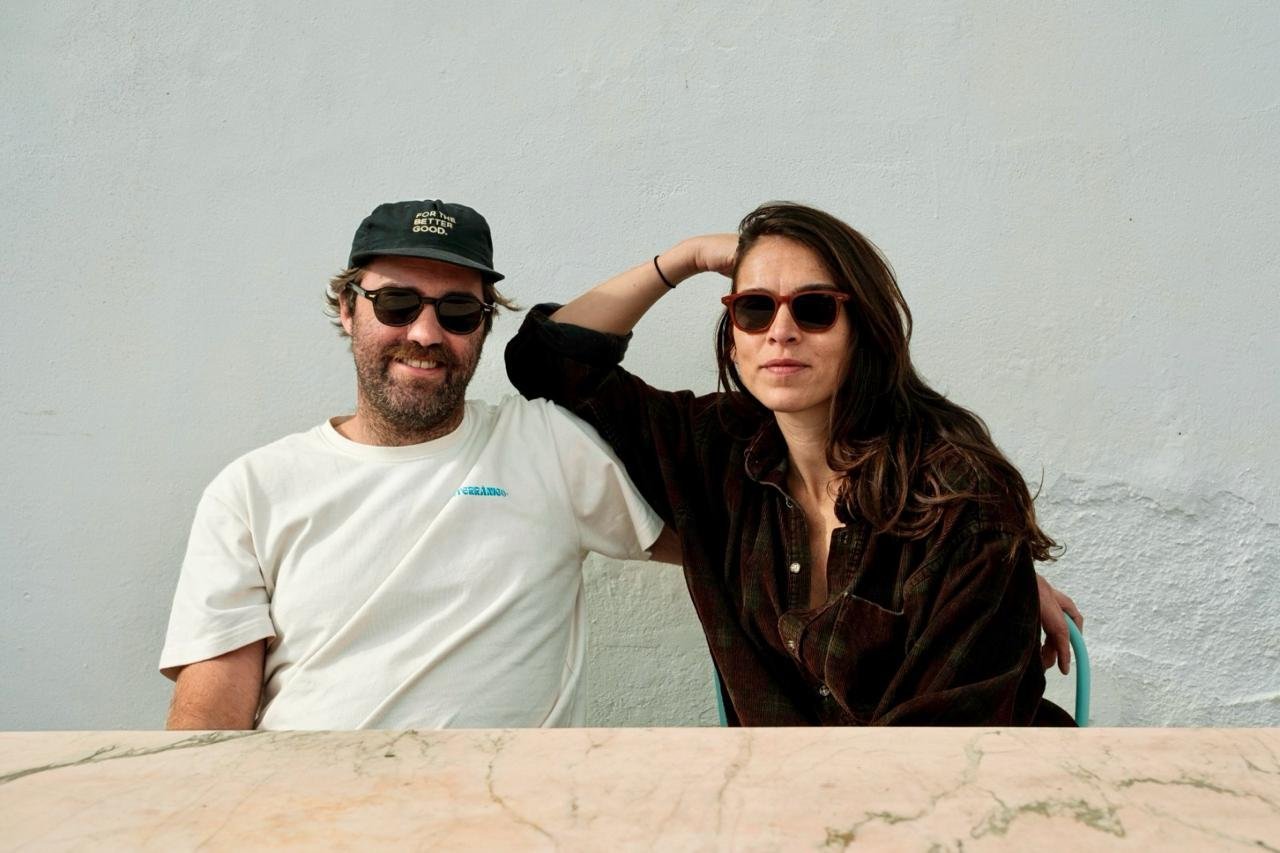
It is simple - if you do not have any place to put waste you need to get creative with it. And George McLeod has no shortage of creativity.
The first step is speaking with suppliers to stop any plastic or material waste coming in to his and partner Lara Espirito Santo’s restaurant, Sem; the second is looking at every ingredient with "more than just eyes on the best part", he says.
"A simple thing like a carrot - the best part of the carrot is once you get the skin off. But then for us it's like, OK, well what are we going to do with the skin? And so there's always there's always options for making the other products from the fruits and vegetables and meats into higher quality products."
Fermentations are his answer. He and his team create new Nordic and Japanese-style fermentations such as miso, soy and fish sauces and "wastershire".
"We use all byproducts, so like during the menu creation I'll write like a normal list of the jobs that need to be done to create the menu every day for the chefs but then I've got a different list for how to process the byproducts like what byproducts there will be from the menu and then how we're going to process them to introduce them back into a future menu."
But it does not stop there. Foraging for edible native and invasive species is another and they source their meat and vegetables from small progressive farms using regenerative agriculture.
"We kind of found a lot of these small suppliers quite close to Lisbon. Before we found them they weren't even coming to Lisbon, like no-one in Lisbon was interested in what they were doing so they were just selling it at at fruit and veg markets but then now they're in Lisbon and they've got 15, 20 other restaurants that they're supplying and they're fully on board. We don’t have to convince them not to create waste."
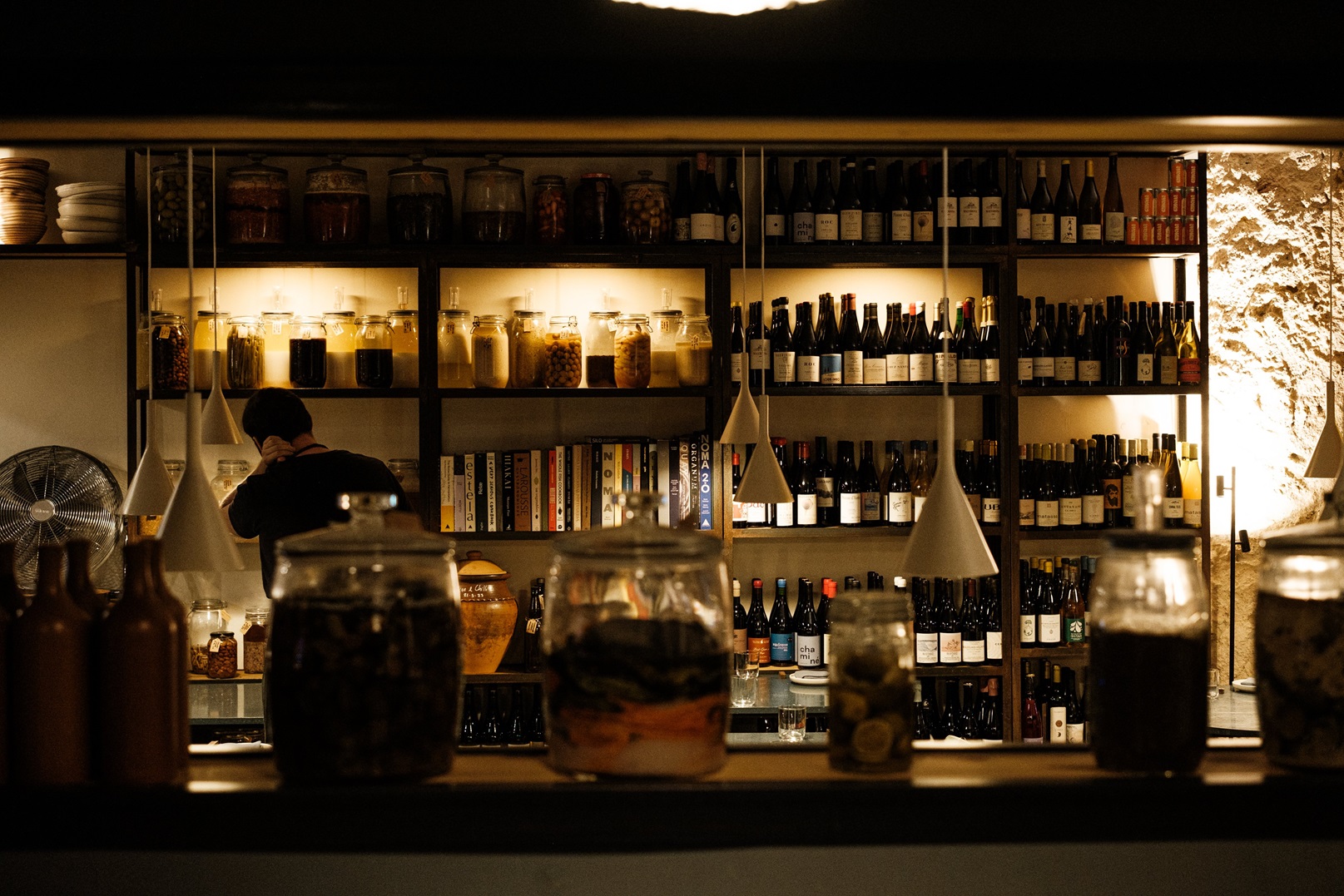
"Farmers don't get enough rep. They're doing such hard work for most of the time not very much pay and most of the guys doing the regenerative agriculture or these kind of smaller niche farming systems they're independent so they're kind of scraping by but they don't really get the limelight that they do so we kind of see them as a partnership."
They do not serve fish from the sea due to overfishing, instead using freshwater fish like the invasive Zander, which predates on native species.
McLeod, who was born and grew up in Dunedin until he was 10, talks to the farmers weekly and regularly visits.
"I’ll have lunch with them. We’ll make a bit of a plan so they can plant stuff for us as well - they're always willing to do these kind of things too which is pretty exciting."
The approach has seen Sem, which offers a seven-course tasting menu, win Best New Restaurant in Portugal and in Lisbon in 2021, and McLeod a "one knife" at the Best Chef Awards in Dubai recently, where Amisfield chef Vaughan Mabee won a special award for top dining experience.
"It was very cool, very unexpected. I bumped into Vaughan ... it was super funny, we’re the only two guys from New Zealand in the whole place. Chatting and rubbing shoulders with guys I’ve been following for 10 years. The guy who won best chef in world comes up to our group and hands us all beers ... was completely blown away. I have imposter syndrome."
Their hard work has enabled them to become the first Portuguese restaurant to achieve a Sustainable Restaurant Association Food Made Good standard, earning a three-star rating.
While the recognition is not the reason for the work they do, he says it does fuel the fire for the work he and Espirito Santo do.
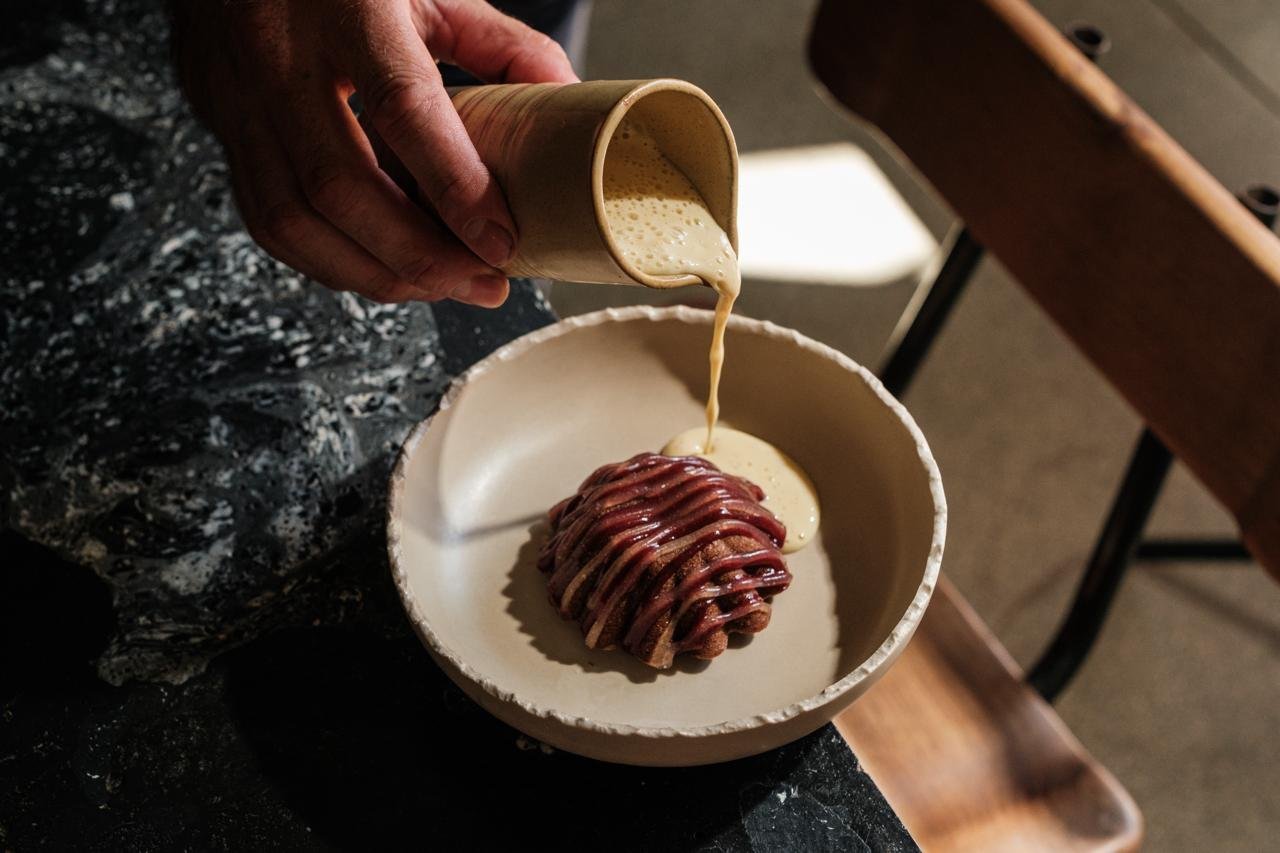
"This year we're being quite strict on it, especially with the trying to use less meat and only using specific types of fish. The limitations are real. We're constantly adding new limitations to it. When you put yourself into a box you've got to be creative to get yourself out of it. We're pushing it pretty hard this year, it's exciting."
Sem is a vegetable-forward restaurant, but still serves meat from European leaders in regenerative agriculture, believing grazing animals are a critical part of a future food system.
"I might prefer to use a lot more vegetables and use very high quality proteins. They have these ridiculously good cows and pigs so we get some of the best meat that you can get in this part of the world, like the Iberian Peninsula pigs, but it won't necessarily be a big portion."
Analysis of the restaurant’s meat usage showed it served 1.3 tonnes of meat last year
"In the grand scheme of things it isn't that much. Hundreds of restaurants would use that every week, but when you have these metrics, when you see the numbers, you can then make judgement calls if that was an OK amount of meat or if that was too much meat. I know it's not a big number but this year the goal is to cut that in half, still use it from the right sources, still champion it when it needs to be championed, but use it in a more subtle way."
There will only ever be one dish which has a piece of protein on it.
"Like the meal now, for example, the only animal protein is a little smoked chicken crumpet, like a little small one at the beginning, and then we use the main dish as a fish so we're very, very cautious and careful about how much meat we use."
He believes this is an approach many more people should take.
"I think the world sees meat incorrectly. The balance is completely wrong. The meat consumption is ridiculous compared to what it needs to be. So we're just trying to reflect that in the restaurant, that meat doesn't always need to be the main star of the show anyway."
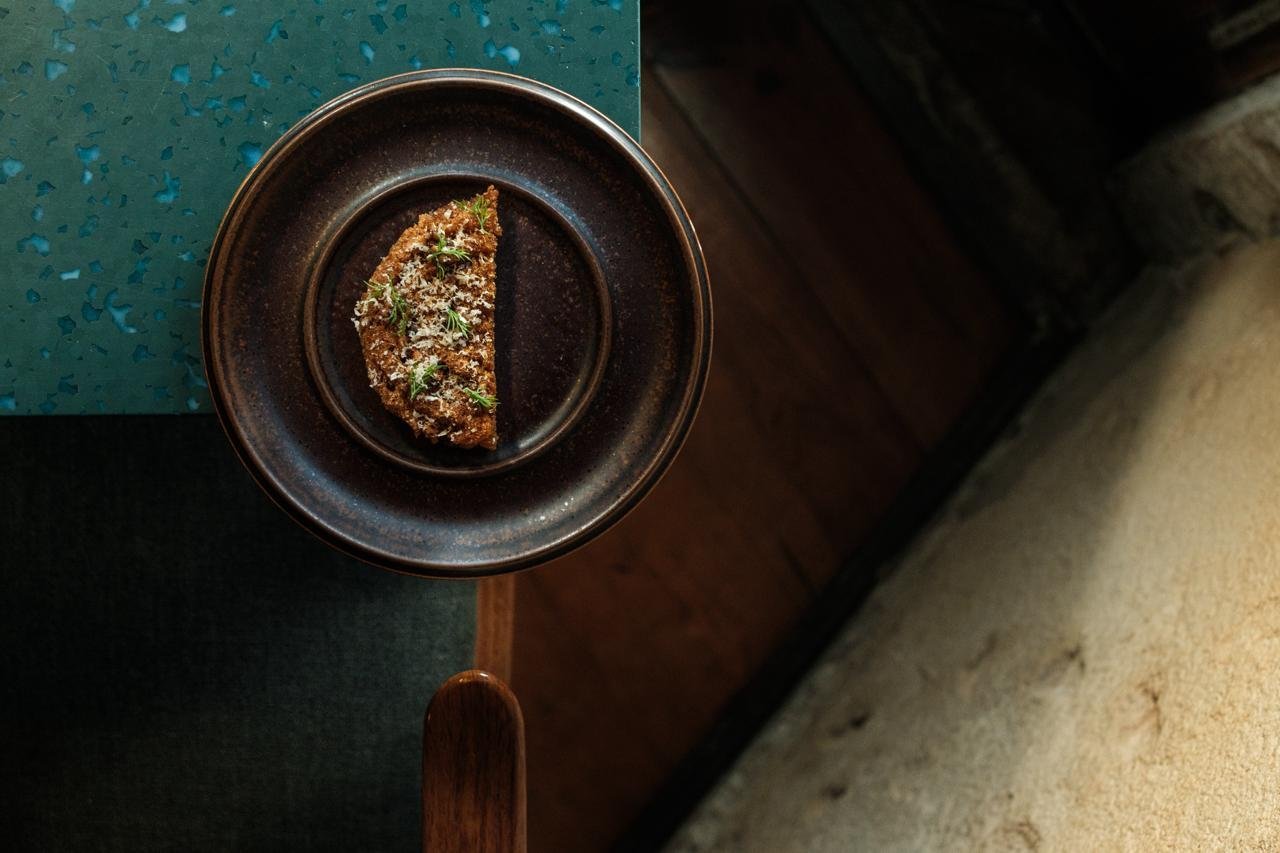
"That's the best part of the job. I've been cooking long enough now that cooking consistently for seven hours a week is not interesting for me any more. It's the creative part and the direction and style of being a chef - that's what keeps me going."
His interest in "no waste" cooking emerged while working at former Wellington restaurant Whitebait, whose head chef, Jimmy Pask, was from Brighton in England.
"I was kind of cracking on to him one day. I was quite young still. I hadn't been cooking that long. Like most restaurants they were taking the fillets of the fish and then the rest was just going into the stock or into the bin because there was too much of it, and I was kind of questioning it."
Pask suggested McLeod check out the first no-waste restaurant Silo, in Brighton.
"He's like ‘look, there's clearly something there, there's a passion for you there, you need to go there basically’. He's like ‘you should stop working here and you should get some money behind you and just go’."
So McLeod did. He headed to Australia to earn some money and then arrived in London planning to enjoy an English summer before looking for work. In the meantime, Silo moved to London and he eventually managed to get a job there.
"Working in their zero-waste system it just made total sense to me. Soon as I started I was saying, this is it, this is exactly what I want to do, this is where I need to go. And just like the understanding of the food systems and how wrong they are and you start learning about small things about how much waste there is in the world and how much hunger and then how much soil is being damaged, it kind of just all started clicking into place."
Until then he had been cooking for the sake of it but never saw it as a career path.
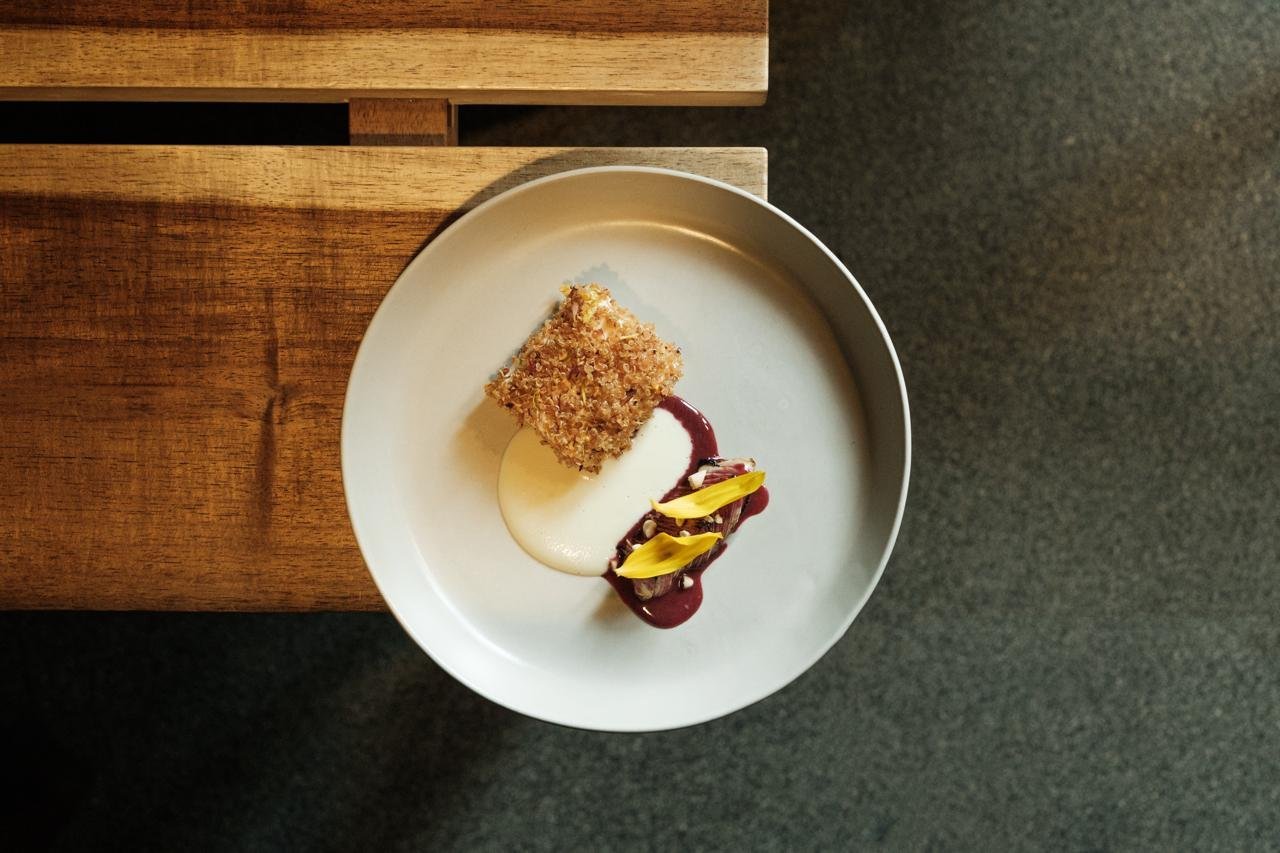
McLeod was promoted to head chef at Silo, his dream job, but a month later Covid-19 hit and the restaurant closed. Knowing they could not stay in London in a basement flat with their dog for lockdown they looked for flights to Brazil, but they were not taking dogs, so they booked themselves on the last flight to Portugal before everything closed down.
The intention had always been to return to Silo but they realised they could have a bigger impact in Portugal than they could in London where they would be going back "to preach to the converted".
He enjoys living in Lisbon with its heritage and they live a 20 minute-drive from the restaurant, but with no family connections in Portugal they do miss friends and family, especially as they now have a 2-year-old.
It helped taking a couple of months off late last year to visit Brazil and New Zealand, including a week in Dunedin staying with his parents.
"I feel like I’ve got more to do before I come home but I definitely will. I'm just not sure when yet but I definitely want to. It's a great place to be. There's a few more things I need to tick off before."
That includes possibly moving to Brazil, where they think they could have more impact.
"We're so driven by the concept, the idea of changing the model for restaurants. My partner is amazing. She talks at cooking schools, she talks at conferences, podcasts, magazines, articles. She's a bit of a weapon."
In Brazil there is not anyone doing similar things or championing producers and trying to change the system even though there are a lot of great chefs and great producers.
"So there's a few of those goals that fall into this umbrella of impact - to be honest, the audience is just bigger."
*This article has been amended to reflect George McLeod's correct name. The Otago Daily Times apologises for the error.












